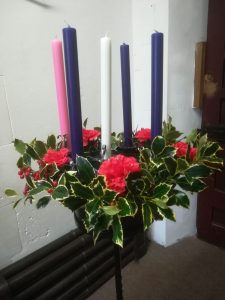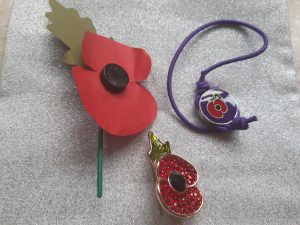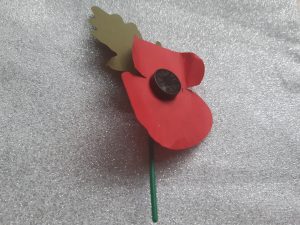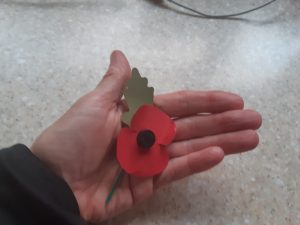Advent Sunday – Year B – Rev Alison Way
Link to the Advent Sunday Service and video reflection: https://youtu.be/aszbKE-h_p4
Isaiah 64:1-9 and Mark 13:24-end
Let the words of my mouth and the meditations of our hearts, be acceptable in your sight – O Lord our strength and our redeemer. Amen
the words of my mouth and the meditations of our hearts, be acceptable in your sight – O Lord our strength and our redeemer. Amen
The singing of “O Come O Come Emmanuel” – with its reflections on the historic titles we give to Jesus and its lilting melody and unmistakable minor key herald the start of the new church year – and the start of Advent. Our time of prayer and preparation as the days shorten but with the light of Jesus once again shining in our hearts. As it did when he first came to earth as a vulnerable baby to save us over 2000 years ago.
Jesus came at that time – as the Messiah – promised of God – to sweep away the old and bring in a new way of all humanity being loved and cherished by God. Sweeping away the old – includes all the time that had passed with God working through Abraham and his descendants. Their journeys to and in the promised land – and the times of exodus and subsequently exile and eventual return to Jerusalem, and the building and then the rebuilding of the temple.
With the coming of Jesus – God is working in a new way – and our reading from Isaiah today is from those times after the return from the exile in Babylon. A lot of people much wiser than me have drawn parallels between the exile experiences of the people of God and our recent times with coronavirus. For example, Samuel Wells who is the vicar of St Martin in the fields along Maureen Langdoc came up with 10 practices for our Covid days inspired by theological themes from the exile. These are:
-
Resist denial: practise truthfulness.
-
Resist assuming control: develop patience.
-
Resist the impulse to be right: discover humility.
-
Resist anxiety: find courage.
-
Resist fleeing from yourself: become your own friend.
-
Resist the suffocation of technology: embrace joy.
-
Resist the assumption of scarcity: celebrate abundance.
-
Resist self-centredness: embody charity.
-
Resist greed: realise simplicity.
-
Resist despair: choose hope.
https://www.abc.net.au/religion/practices-of-resistance-coronavirus-lockdown/12164370
The reading from Isaiah starts with ‘O that you would tear open the heavens and come down’ – in its own way that is exactly what God did when Jesus came. It was not done in the dramatic way Isaiah imagines – no mountains quaking or fires, but through a young faithful woman – messages of angels, visiting shepherds, a travelling star and wise men from the east.
Isaiah is writing of the times when despite everything that has occured – when God’s chosen people have returned to Jerusalem after the exile, and are rebuilding the temple. Even after all that, still the importance of God in the lives of the people is not central. Things are better than they once were so they have slipped back into apathy. God recognises something new and different is needed and it comes quietly at first – as Jesus is born as a vulnerable baby all those years ago.
I will come back to Isaiah – but we also get a sense of Jesus’ time on earth building to a crescendo in our passage from Mark’s gospel. In the action, this is not long before Jesus is taken to be crucified. He is trying to get across what he is there for. The language (as it is in Mark) is more hidden and mysterious – but there is clarity there. My words Jesus said – will not pass away. And indeed it is testament to their importance that we continue to study then and find new meaning for each passing generation. Jesus words here are a call for us to stay watchful and alert to the good news of Jesus. In our preparations for Christmas I think this must be a call to us to stay focused on what Christmas is really about – how God’s love came down to earth on that first Christmas for us all.
Back in Isaiah – one of the phrases that most struck me was in verse 8 – Yet, O Lord you are our Father; we are the clay and you are the potter; we are all the work of your hand. Powerful words indeed – are we clay in our Father, the potter’s hands. Are we letting God shape us and guide us in these difficult days – are we open and malleable to his shaping. There have been moments in our journey through 2020 when some of the basic building blocks and things we hold most dear have been stripped away. This has been difficult and challenging – have we stayed open to the still small voice of God’s guiding in our strange and confronting times. Relying on God will give us through his Holy Spirit the strength for each step we need to take. Staying focused on each step also helps us not to over-reach.
I like a good plan – and I confess I have found it confronting and stressful that we cannot really progress in that way at the moment. I look at our plan for Christmas celebrations (which seem a pale imitation of what any of us would usually do or want to do) apprehensively knowing it could happen or it could not happen – or even something else quite other could happen. I have never quite known a time like this. Its more than doing a jigsaw puzzle with out the picture, its doing a jigsaw puzzle without the picture and with the pieces fading in and out and changing all the time!!!
What can we do in these circumstances – what we can do is practice what Jesus says in our Gospel – staying alert and watchful. Staying focussed in the present in the moment, looking for the good, being kind and thoughtful. Being thankful for each day and the presence of God with us. Being ready to do what God wants of us. And remembering all God has done for us – particularly in sending Jesus to us.
This brings me to our second hymn (which will sing near the end of this video service). This hymn captures the big picture of Jesus’ love for us in a sublime way – equally associated with this Advent Sunday. It is The Wesley classic (words by Charles music by John) – “Lo, he comes with clouds descending”.
I don’t know if you remember me saying at my licensing back in February here that “At the name of Jesus” – set to the tune Camberwell was my second favourite hymn – well “Lo, he comes with clouds descending” is number one in my book. This hymn is a mix of imagery of what Jesus did for us on the cross – a subject we talk about a lot and also imagery we talk about a lot less frequently – watching and waiting for Jesus’ second coming – as the gospels and John’s revelation also predict. This is very much the stuff of Advent and Advent Sunday in particular. That challenging extract of Mark’s gospel we have just heard is also riddled with images of the second coming to. For example amongst the action described was the Son of man coming in the clouds.
Talking about the second coming of Jesus is quite tricky – and in the past this subject has been rather abused to engender fear and submission to inappropriate regimes. Obviously the gospel writers, wrote what they did expecting the ‘second’ coming to come soon.. This is reflected in the part of Mark’s gospel that says Truly I tell you, this generation will not pass away until all these things have taken place. 2000 years on this leaves us a bit mystified, from the position where the second coming has yet to come. One of things this means we particularly need to do is get in touch with our mystical side and put down our reliance on logic and rationality. There are deeper things afoot here.
So what is this deeper meaning then. I think we need to acknowledge something of the awesomeness of God. How God’s interventions such as when Jesus came in the first place can be very dramatic, unexpected and in ways beyond our comprehension. Also when God intervenes again as God will at some point when the way we live now inspired by the power of the Holy Spirit Jesus left us comes to end – however this intervention comes to be from God– it will be dramatic, unexpected and beyond our earthly powers of comprehension
Understanding this, means living ready for everything and anything from God – surely something 2020 has taught us over and over again. With our eyes firmly on Jesus and the promise of eternal life. For Christians death brings the promise of intimacy with our loving God. The second coming if it happened in whatever way it might in our life time, would bring this intimacy too and this is the hope we live our lives with. In that sense the second coming is not something to be feared, but something to be marvelled at and wondered about. The prospect of the second coming should be something that brings how we live our lives into sharp focus.
The guidance from Mark’s gospel this morning is this as Christians to expect challenging and difficult times and to face them in readiness, courageously and determinedly. We also need to be sure of our foundations, and not to place too much store on the things of this world. To concentrate on our relationship with God and the things to come.
Remember as I said earlier – Jesus said Heaven and earth will pass away, but my words will not pass away. Jesus is asking us to be ever watchful, alert and ready and to pray for strength from the Holy Spirit. All of which is very sound guidance in how we approach our lives, when we think about what Jesus has brought to our lives now and what the second coming could bring. Fundamentally, this passage is a wake up call asking us to live with a real sense of expectancy – alert and ready to how God has intervened, is intervening and will intervene in our earthly existence. Jesus Christ, yesterday, today and forever. And how our priority must be to live clinging to God’s values and not our own. We need to live and pray as my favourite hymn Lo he comes ends –
Saviour, take the power and glory – claim the kingdom for thine own. Alleluia! Alleluia! Alleluia! – Thou shalt reign and thou alone. Amen
The New Revised Standard Version (Anglicized Edition), copyright 1989, 1995



